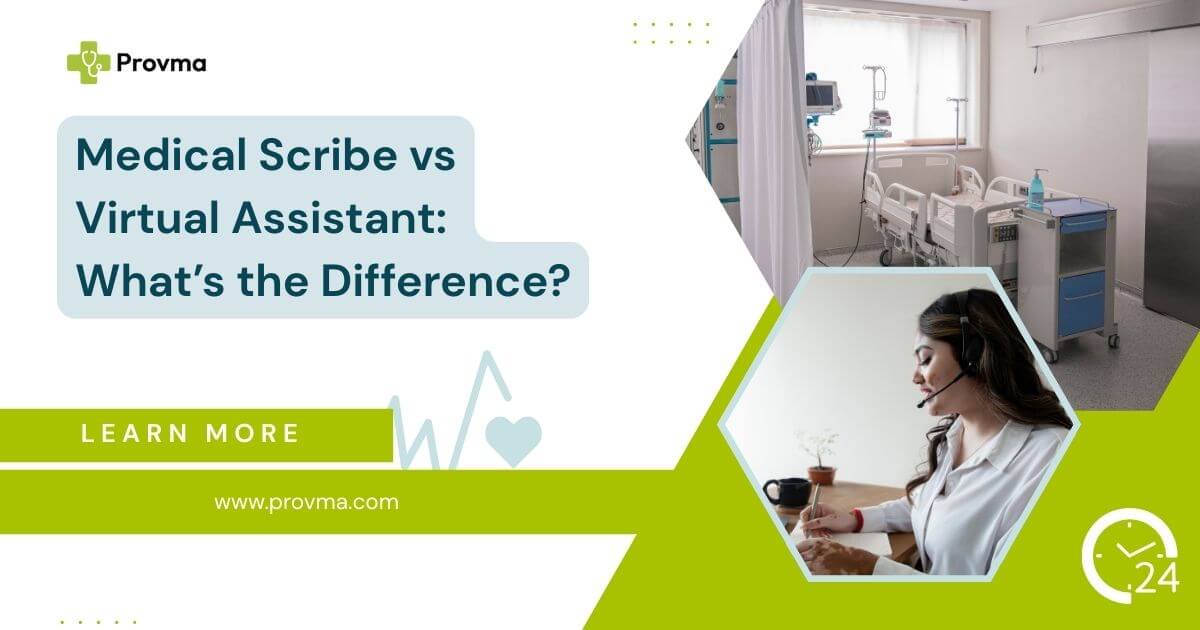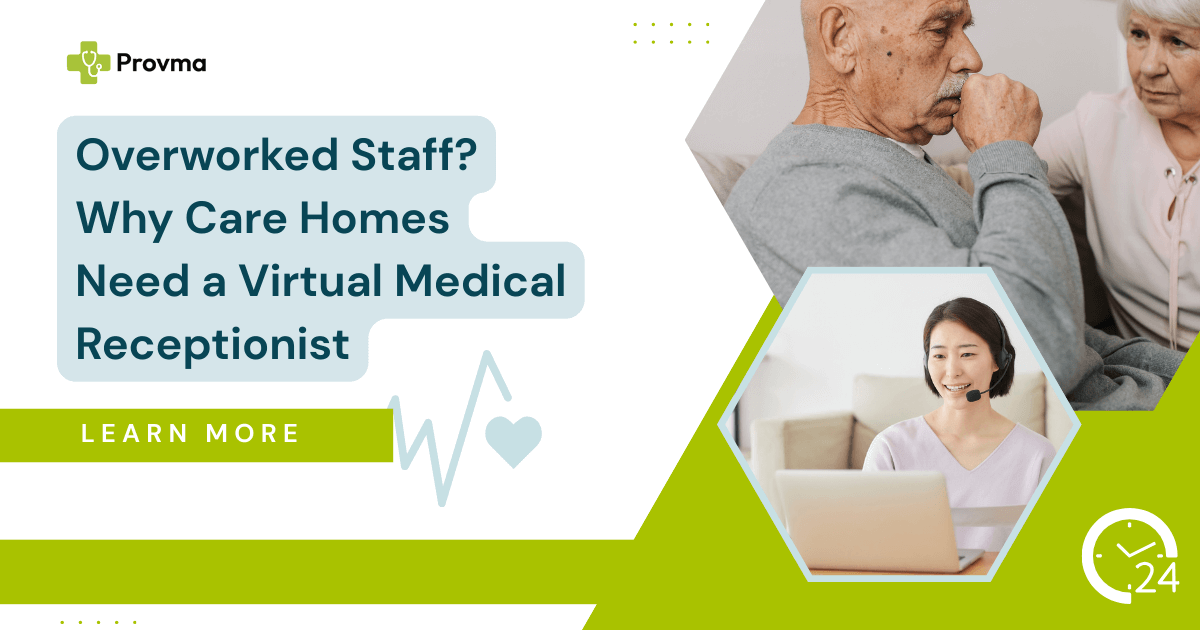If you’re running a clinic, managing home care visits, or handling a busy specialist practice, you already know the biggest pain point:
You don’t have time.
Time to chart.
Time to follow up.
Time to manage appointments.
Time to grow your practice.
So what’s the solution?
You’ve probably heard of Virtual Medical Assistants (VMAs) and Medical Scribes. Both sound helpful — but which one is right for you?
Let’s break it down, with zero jargon, from the perspective of a busy healthcare provider like you.
If You’re Tired of Typing Notes After Hours — You Need a Medical Scribe
Be honest — are you spending your evenings clicking through EHR screens instead of relaxing with your family?
A Medical Scribe is your answer.
They listen in real-time during your patient consultations and document everything directly into your Electronic Health Record system.
That means:
- No more charting at 9 PM.
- No more missed notes.
- No more burnout.
Whether in-person or virtually, scribes help you stay focused on what matters most: your patients.
Check out: Virtual Medical Scribe Services
If Your Front Desk Is Drowning — You Need a Virtual Medical Assistant
Now, if your issue is more like:
- Phones ringing nonstop
- Patients missing appointments
- Delayed insurance verifications
- Staff getting overwhelmed with scheduling and follow-ups
…then a Virtual Medical Assistant is what you need.
They act like an extension of your team — remotely handling everything from:
- Appointment scheduling
- Incoming patient calls
- Insurance verification
- Medical billing support
- Daily admin chaos
And yes, they’re HIPAA-compliant and trained in medical workflows.
Learn more: Medical Virtual Assistant Services
But Wait — What If You Need Both?
You’re not alone.
Many practices are now choosing a hybrid approach:
- A virtual scribe for clinical note-taking
- A VMA to handle the office side of things
It’s the best of both worlds — especially if you’re managing a growing caseload, doing telehealth, or scaling up your services.
You gain time, peace of mind, and control over your schedule.
Here’s How to Choose: Quick Questions to Ask Yourself
Are you spending too much time charting and typing during visits?
→ Go with a Virtual Medical Scribe
Are you overwhelmed with admin tasks, calls, and follow-ups?
→ You need a Virtual Medical Assistant
Are both problems draining your time and energy?
→ Invest in both and let your practice finally breathe
What Makes PROVMA Different?
At PROVMA, we understand the day-to-day struggles you face. Our team is made up of real people — trained in the medical field — who can immediately plug into your workflow and start making your life easier.
- HIPAA-compliant virtual staff
- Customized support packages
- Specialized in clinics, home care, and specialists
You don’t need to hire more in-house staff. You just need the right virtual support.
Ready to Offload the Work?
Don’t wait until your inbox is overflowing and your weekends are buried under documentation.
👉 Schedule a FREE consultation
👉 Explore Virtual Medical Scribe Services
👉 See How Our Virtual Assistants Work
Let us handle the busywork. You handle the care.
Final Thought: You Deserve Time Back
Whether you’re a solo provider, managing a multi-provider clinic, or delivering care at home — you didn’t go into healthcare to drown in admin.
Let a Virtual Medical Assistant or Medical Scribe give you back your time.
- Your patients will notice.
- Your family will appreciate it.
- And you’ll finally feel in control of your practice again.





